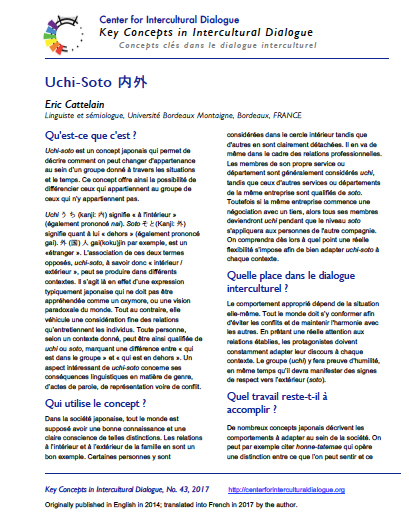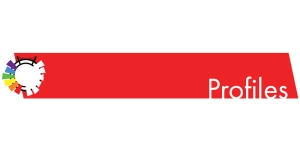CFP European Communication Research and Education Association (ECREA) Communication History Section
Budapest, Hungary, 7-9 September 2017
Our Group First! – Historical perspectives on Minorities/ Majorities, Inclusion/Exclusion, Centre/Periphery in Media and Communication History
“Our group first!” A familiar chant, which echoes past times in contemporary voices has recently gained momentum in the political discourse in Europe and the United States with resonance all over the globe. The claim and focus of such demands is however not new, but rather restorative with illustrious historical predecessors. Throughout history, communication has always been used to disseminate stereotypes, narratives and social myths aimed to the end of creating clear distinctions between a superior “us” and the “other”. Drawing lines between “us” and “them” is functional in negotiating senses of community and belonging and goes way beyond its political use. However, inclusion always harbors exclusion as well and the identity of groups also demarks
their boundaries. For this workshop the ECREA Communication History Section invites scholarly presentations to shed light on questions of inclusion/ exclusion, minorities/ majorities and centre/ periphery in communication.
The goal is to understand such practices throughout a variety of historical and cultural settings and to learn from the past for contemporary challenges. The workshop allows for a scope ranging from the macro level of national or supranational societies, to very peculiar particularities of social groups and issue communities. The workshop is also interested in work that helps to deconstruct or re-evaluate assumptions about minorities/majorities, exclusion/ inclusion, centre/periphery in a variety of contexts and as they are constructed or stabilized in academic work. Submissions dealing with the topics below are specially welcomed, even though the workshop will be opened to papers dealing with other aspects of the relation between media, minorities and majorities.
Minorities through the eyes of the Majorities and vice versa
In different historical locations the media have claimed to reflect societies in which they operate, disseminating cultural and social values that are accepted by the social structure in place, contributing to the imagination of community. In many cases this has led the media to focus their attention on majorities, while minorities are mostly ignored or represented in a negative fashion. Many authoritarian regimes, for example, have used all sorts of communication technologies, from posters and literature to broadcasting and newspapers, to promote fear and hate against minorities while exalting the qualities of those who are said to be the true patriots.
The concern about how minority groups are represented in public communication and how they engage in media production has deserved academic attention with the publication of books and journal issues dealing mostly with how mainstream media treat disabled citizens and gender, ethnic and religious minorities, migrants or refugees. We are interested in submissions addressing the logics, motives and uses of communicative constructions of normality and deviance, homogenization of cultural norms, dealing with heterogeneous concepts of life, alteration and hybrid identities. The workshop will focus on the creation of different types of minority groups as in-groups and out-groups, the alteration of their positions, identities and histories.
Different by choice
Differentiation and distinction are important ingredients for identity work. We are interested in communication phenomena and styles, which aimed at differentiating perspectives and creating alternative communities (e.g. hackers, tech-nerds) or establish alternative cultural scenes (e.g religious groups such as the Amish). This ranges from subcultures to the doing identity of political, LGBT, or activist groups and the conflicts and struggles they engaged in. Research is invited, which analyses special media formats produced by or addressing specific niches in the “small life-worlds of modern man” or highlight specific (protest) campaigns or identity management practices of such groups. Also representations of such minorities by choice through the lens of majorities, the mainstream media or popular culture are welcomed.
Inclusion and exclusion.
Minorities are often excluded from possibilities
of communication that are taken for granted and offered to majorities. Policy makers and commercial driven companies often consider as unprofitable bringing communications in unpopulated areas which leads to the exclusion of specific groups of people or specific region. Moreover, people tend to self-exclude themselves from too difficult, too expensive, and too complicated forms of communication. The workshop welcomes contributions on the history of communication divides (analogue and digital), and histories of political or business practices aiming to exclude groups of potential users.
Minority Media, Majority Practices
With the decline of mass communication and the slow disappearance of large audiences the lines between minorities and majorities get blurred when it comes to reception practices and habits. The discussion on how majorities and minorities use communication (technologies) and how they are represented on the media should also take into account the role of alternative media that, in many different historical contexts, have been created and operated by minorities. While cases like the Jewish press comes immediately to mind, feminist magazines and community radio stations are also examples of how different groups have used the media to promote their ideas and ideologies among fragmented audiences and compartmentalized collective identities. Many of these media played a role in in-group identity construction, frequently transcending borders and linking transnational audiences. The use of technologies that has widely disappeared or retracted to small niches or the nostalgic rediscovery of past media devices that are considered minoritarian will also be discussed.
Centre and periphery
Majorities are often at the centre and minorities at the periphery of infrastructures and networks. While at the centre the flow of communication is more intense and the speed of connections is higher, at the peripheries connections can be unstable and less reliable. Nevertheless, peripheries are also places where unexpected and minoritaran uses of media and communication emerge. In different historical periods, cities such as Athens, Rome, Venice, London, and New York have been at the centre of communication flows while places distant from the centre have to deal with their peripheral status. Case studies and papers dealing with the consequences of being central or peripheral in communication will be welcomed.
“Us and them” through the history of communication studies
Another field of inquiry the workshop is interested in is the role of academic research in observing and thus preserving logics of inclusion and exclusion through academic work. How do and did media and communication scholars normalize some media practices and pathologize others? What was the role of media and communication scholarship in stabilizing social in-groups while alienating outsiders (e.g. through links to political propaganda, psychological warfare and similar manipulation strategies or corporate advertising)? Which myths and narratives are cultivated by media research and how do prevalent concepts, eligible methods and accessible sources shape and foster certain understandings of media history, highlighting specific groups while sidelining others, thus creating an implicit invisible mainstream? Is thus a biased
understanding of majority and minority groups at a given created in communication history? Which strategies could be used to deconstruct and re-evaluate existing assumptions in the light of gender, postcolonial or non-Western perspectives? How can subgroups hidden in the alleged communication mainstream be made visible? How are in-groups and out-groups (mainstream
and outsider perspectives) constructed within the academic field of (historical) communication research?
Abstracts of 500 words (maximum) proposing empirical case studies as well as theoretical or methodological contributions should be submitted no later than 29 April 2017. Proposals for full panels (comprising 4 or 5 papers) are also welcome: these should include a 250-word abstract for each individual presentation, and a 300-word rationale for the panel. Send abstracts to: Dr. Sipos Balázs (sipos.balazs AT btk.elte.hu). Authors will be informed regarding acceptance/rejection for the conference no later than 15 May 2017. Early career scholars and graduate students are highly encouraged to submit their work. Please indicate if the research submitted is part of your thesis or dissertation project. The organizers will aim to arrange for discussants to provide an intensive response for graduate students projects.










